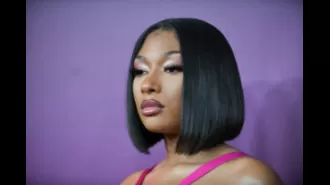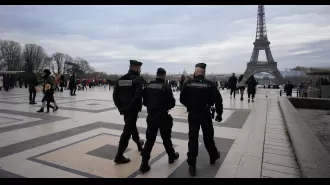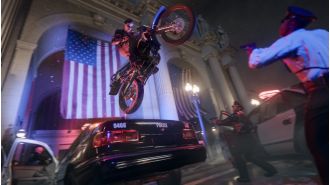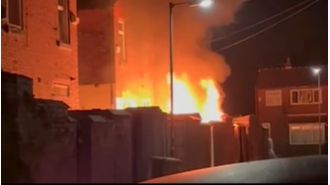Iran is at a crossroads, with the choice between continuing on its current path or making changes to improve its future.
Iran's presidential election, originally scheduled for 2025, has been moved up to June 28 due to the death of President Ebrahim Raisi in a helicopter crash, with the ultimate power remaining in the hands of unelected Supreme Leader Ayatollah Ali Khamenei.
June 17th 2024.
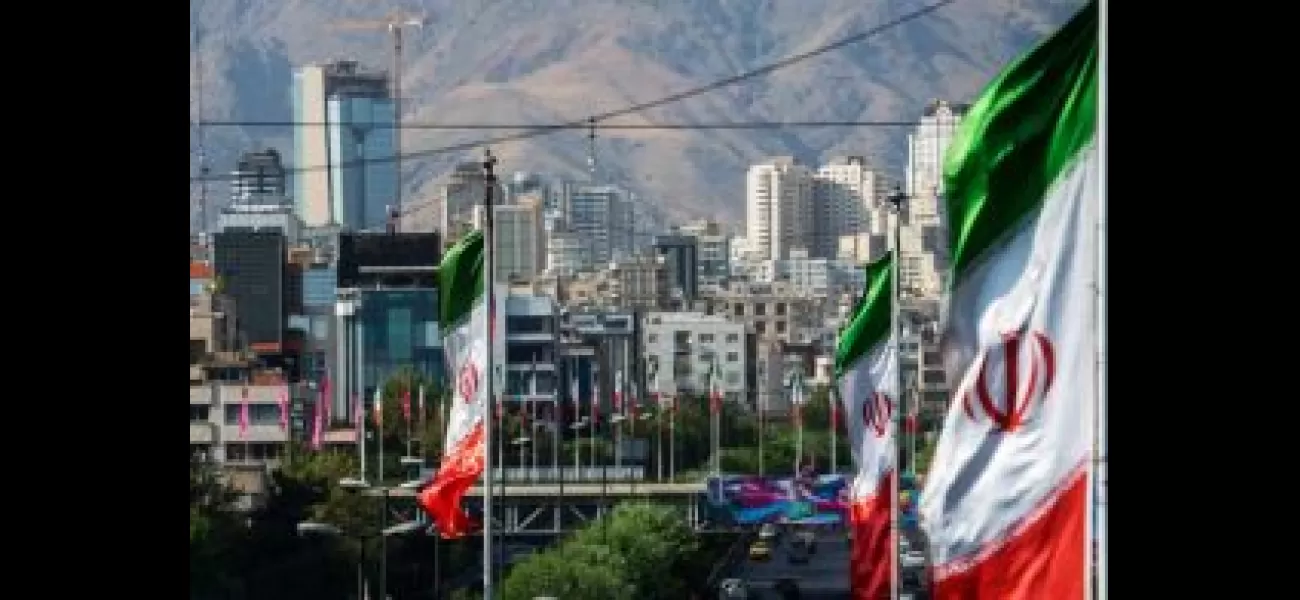
On June 28th, Iran will hold its presidential election, but things are not as simple as they seem. Originally scheduled for 2025, the election has been moved up due to the tragic death of President Ebrahim Raisi in a helicopter crash last month. It's important to note that the real power in Iran lies with the unelected Supreme Leader, Ayatollah Ali Khamenei. The President may hold the second-most powerful position, but their role is primarily to carry out decisions made by Khamenei.
In order to ensure that the President is in line with the Supreme Leader's goals, the Guardian Council oversees the election process and carefully selects and approves or rejects candidates. This lack of true democracy has been heavily criticized by those outside of Iran. This year, out of 80 hopefuls, only six candidates have been approved to run for office. And their main qualification? Loyalty to Khamenei and the existing political system. Among those not allowed to run is the outspoken and controversial former President Mahmoud Ahmadinejad, and once again, no women have been approved as candidates.
This lack of diversity is not surprising, given the strict and rigid nature of the regime. The recent protests by Iranian women against the oppressive treatment by the previous President, Ebrahim Raisi, is a clear example of this. Four women attempted to register as candidates, but were disqualified. Unfortunately, this is not an isolated incident – no woman has ever been allowed to run for President since the 1979 Islamic Revolution.
Even some prominent figures, such as Ali Larijani and Vahid Haghanian, have been barred from running. The decision to approve candidates is heavily influenced by the current national and international situations that Iran is facing. With the country already involved in conflicts with Israel and facing economic struggles, the regime needs a leader who is both hardline and capable of gaining the support of the people. The current Speaker of Parliament, Mohammed Bagher Qalibaf, is seen as the most likely candidate due to his close ties to the paramilitary Revolutionary Guard.
Other candidates include former chief nuclear negotiator Saeed Jalili, ultraconservative chairman of the Foundation of Martyrs and Veterans Affairs Amir-Hossein Ghazizadeh Hashemi, Islamic scholar and former interior and justice minister Mostafa Pourmohammadi, and current mayor of Tehran Alireza Zakani. The only reformist candidate, Massoud Pezeshkian, is seen as a mere formality by critics, as he is unlikely to win. His inclusion in the list of candidates is merely a show of the Guardian Council's supposed willingness to accommodate moderate voices.
But the composition of the Guardian Council, made up of 12 clerics and jurists, is a clear indication that the election is not a true reflection of the people's voices. Half of the council members are appointed by Khamenei himself, and they have the final say on the constitutionality of laws and the eligibility of candidates. In other words, the voters are limited to a group of candidates who are loyal to the regime.
The last presidential election in 2021 saw the lowest turnout in history, with only 48% of voters participating. This year, the regime is trying to regain some credibility and engage at least part of the public. The reformist movement, though too weak to challenge the religious regime, has threatened to boycott the election if none of their candidates are allowed to run. But ultimately, the outcome of the election will be in line with what the Supreme Leader desires.
In order to ensure that the President is in line with the Supreme Leader's goals, the Guardian Council oversees the election process and carefully selects and approves or rejects candidates. This lack of true democracy has been heavily criticized by those outside of Iran. This year, out of 80 hopefuls, only six candidates have been approved to run for office. And their main qualification? Loyalty to Khamenei and the existing political system. Among those not allowed to run is the outspoken and controversial former President Mahmoud Ahmadinejad, and once again, no women have been approved as candidates.
This lack of diversity is not surprising, given the strict and rigid nature of the regime. The recent protests by Iranian women against the oppressive treatment by the previous President, Ebrahim Raisi, is a clear example of this. Four women attempted to register as candidates, but were disqualified. Unfortunately, this is not an isolated incident – no woman has ever been allowed to run for President since the 1979 Islamic Revolution.
Even some prominent figures, such as Ali Larijani and Vahid Haghanian, have been barred from running. The decision to approve candidates is heavily influenced by the current national and international situations that Iran is facing. With the country already involved in conflicts with Israel and facing economic struggles, the regime needs a leader who is both hardline and capable of gaining the support of the people. The current Speaker of Parliament, Mohammed Bagher Qalibaf, is seen as the most likely candidate due to his close ties to the paramilitary Revolutionary Guard.
Other candidates include former chief nuclear negotiator Saeed Jalili, ultraconservative chairman of the Foundation of Martyrs and Veterans Affairs Amir-Hossein Ghazizadeh Hashemi, Islamic scholar and former interior and justice minister Mostafa Pourmohammadi, and current mayor of Tehran Alireza Zakani. The only reformist candidate, Massoud Pezeshkian, is seen as a mere formality by critics, as he is unlikely to win. His inclusion in the list of candidates is merely a show of the Guardian Council's supposed willingness to accommodate moderate voices.
But the composition of the Guardian Council, made up of 12 clerics and jurists, is a clear indication that the election is not a true reflection of the people's voices. Half of the council members are appointed by Khamenei himself, and they have the final say on the constitutionality of laws and the eligibility of candidates. In other words, the voters are limited to a group of candidates who are loyal to the regime.
The last presidential election in 2021 saw the lowest turnout in history, with only 48% of voters participating. This year, the regime is trying to regain some credibility and engage at least part of the public. The reformist movement, though too weak to challenge the religious regime, has threatened to boycott the election if none of their candidates are allowed to run. But ultimately, the outcome of the election will be in line with what the Supreme Leader desires.
[This article has been trending online recently and has been generated with AI. Your feed is customized.]
[Generative AI is experimental.]
0
0
Submit Comment

